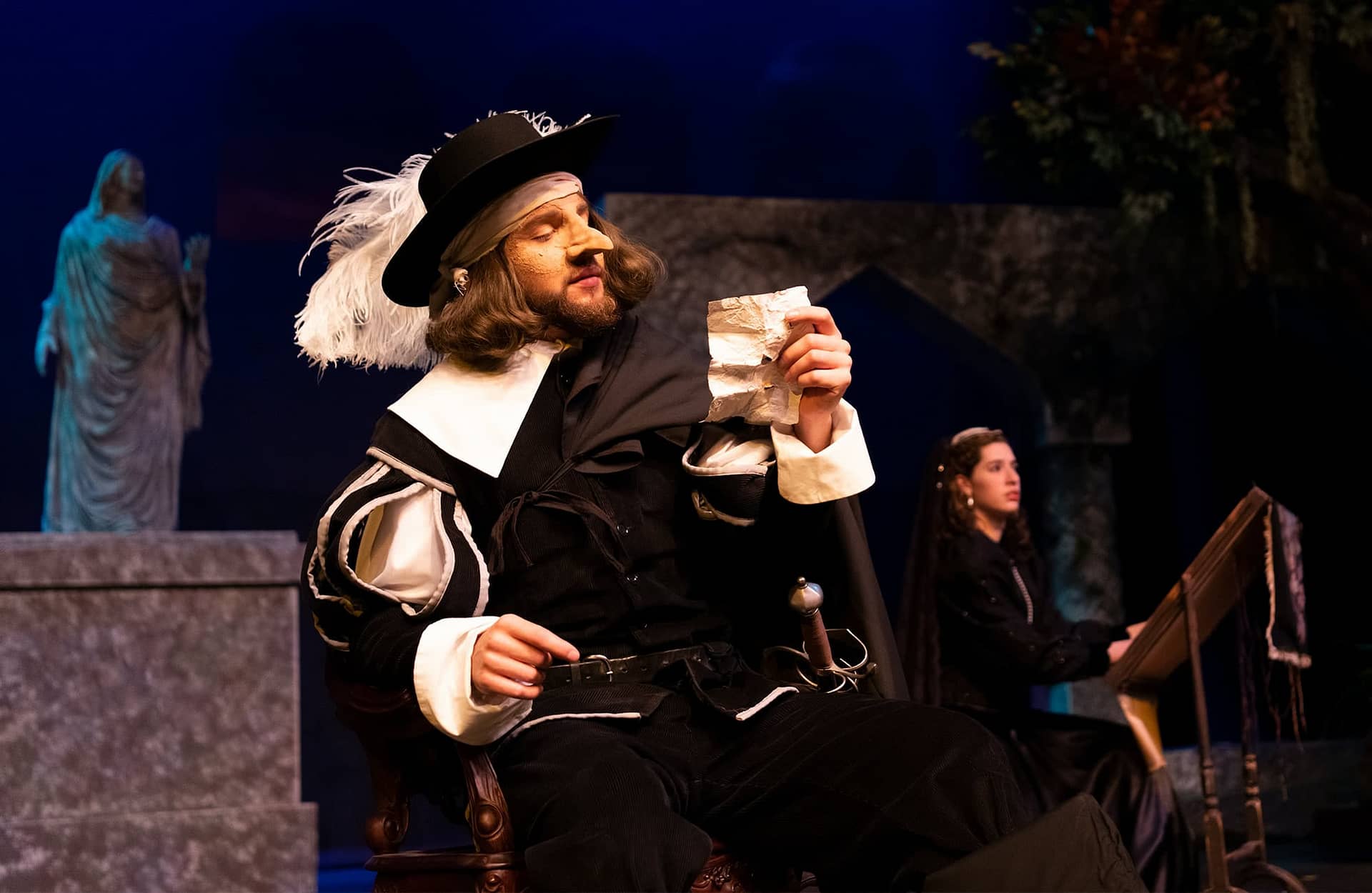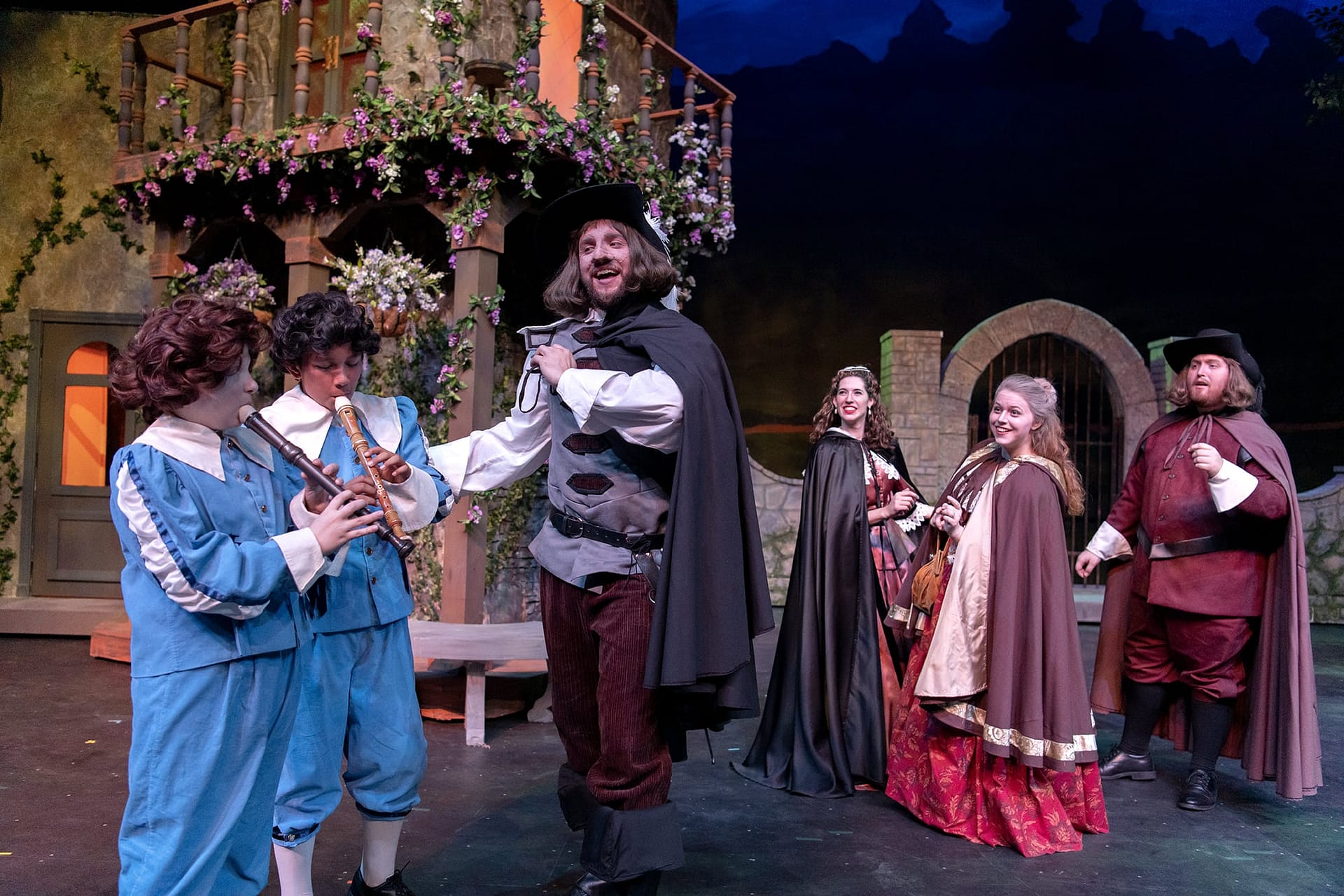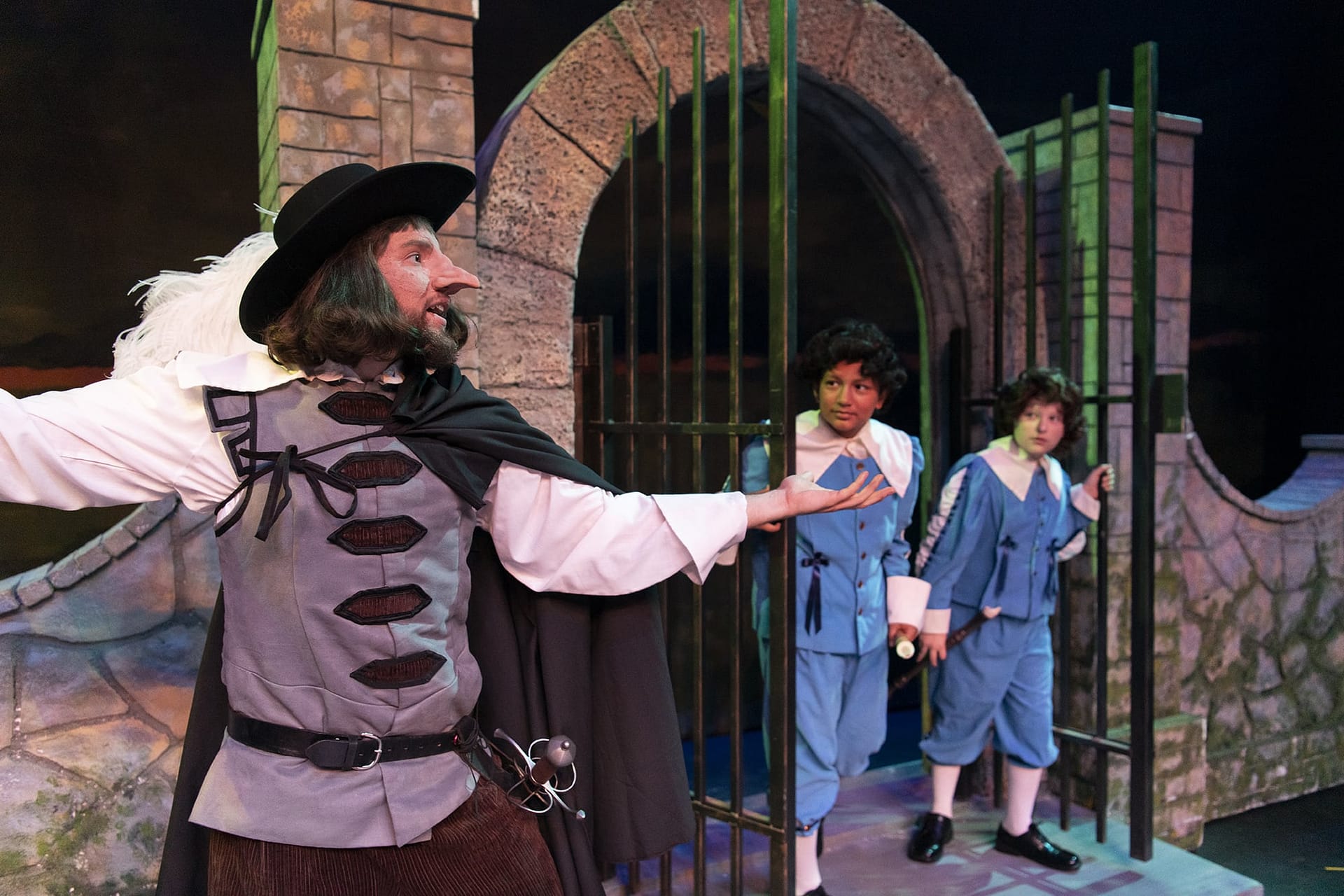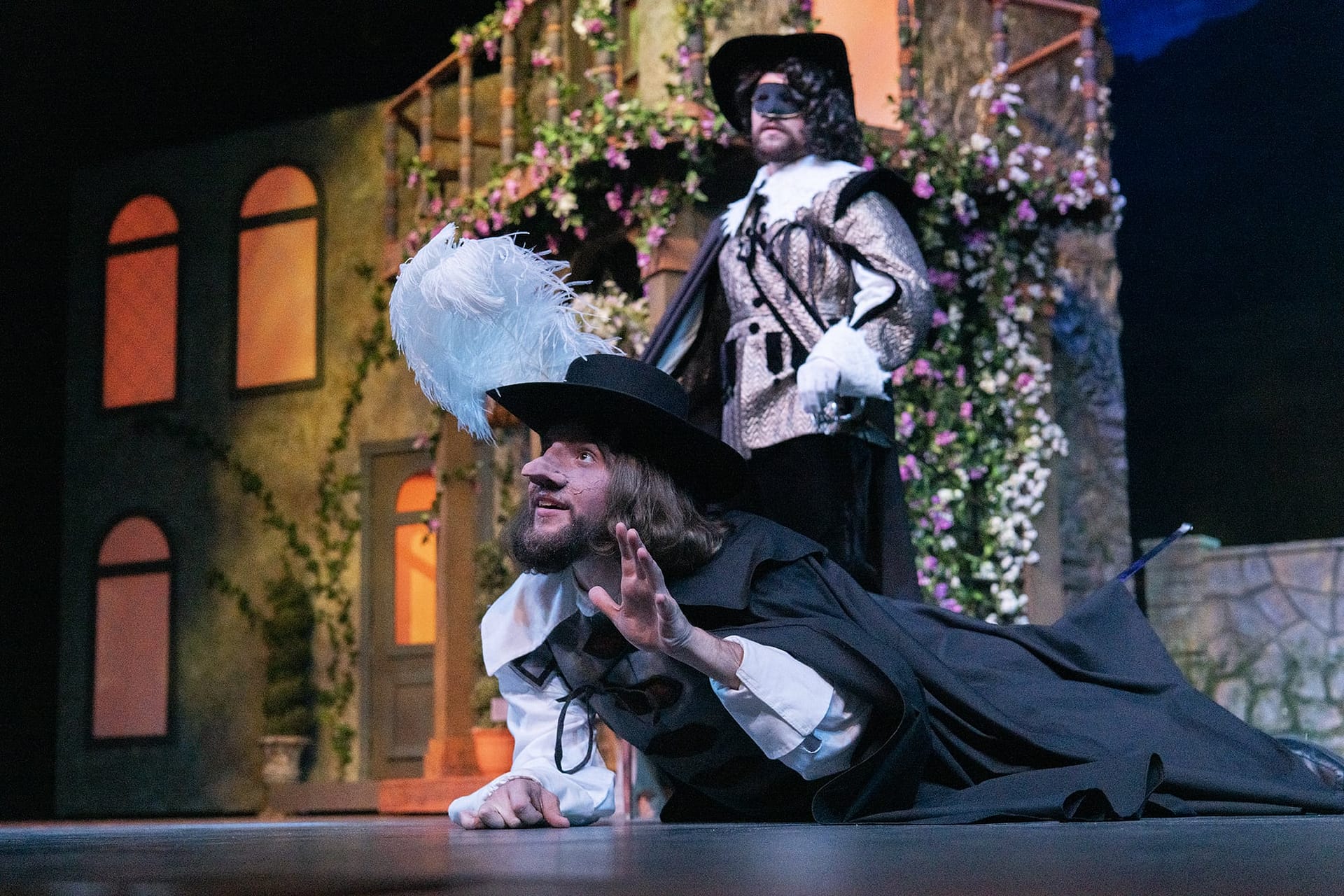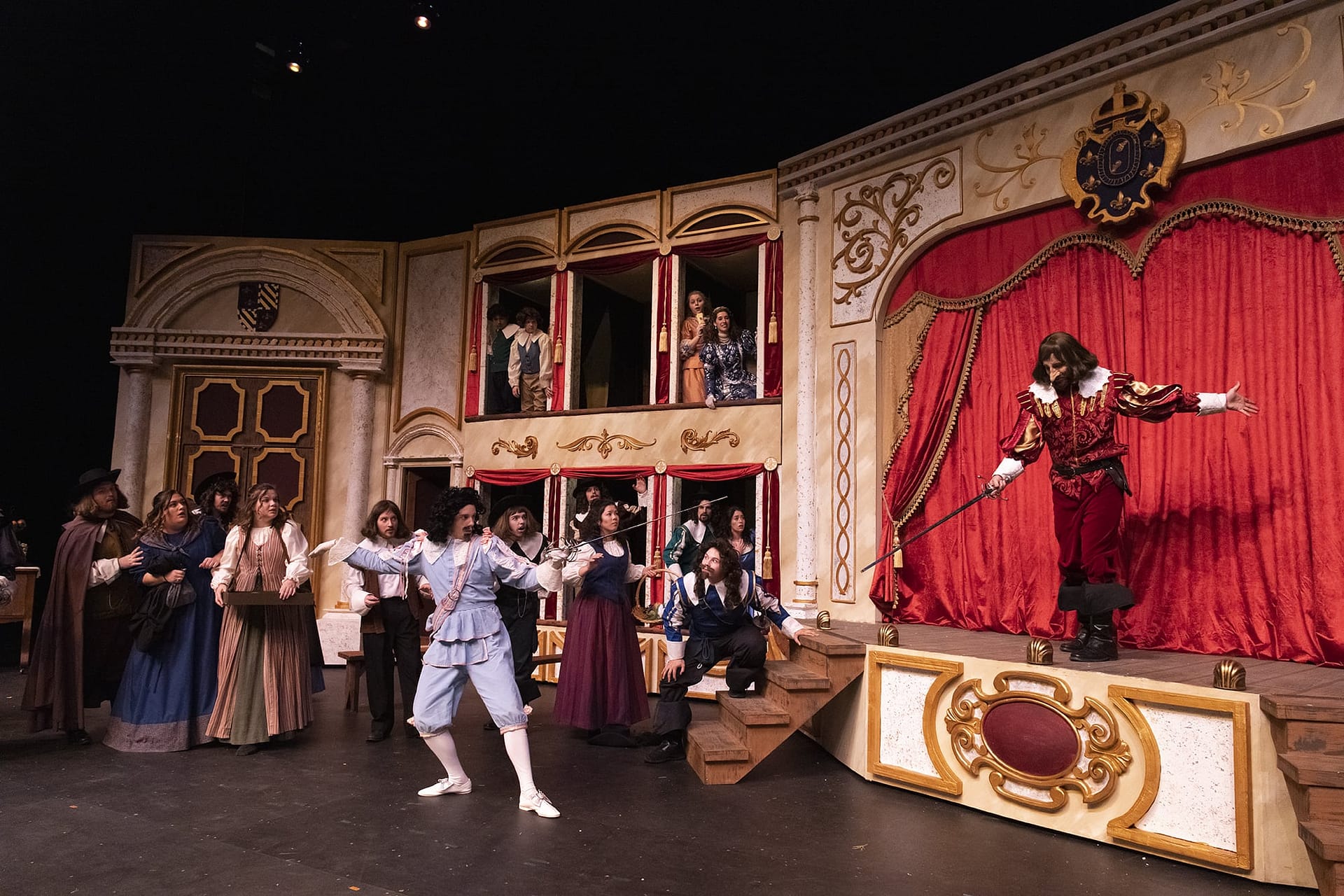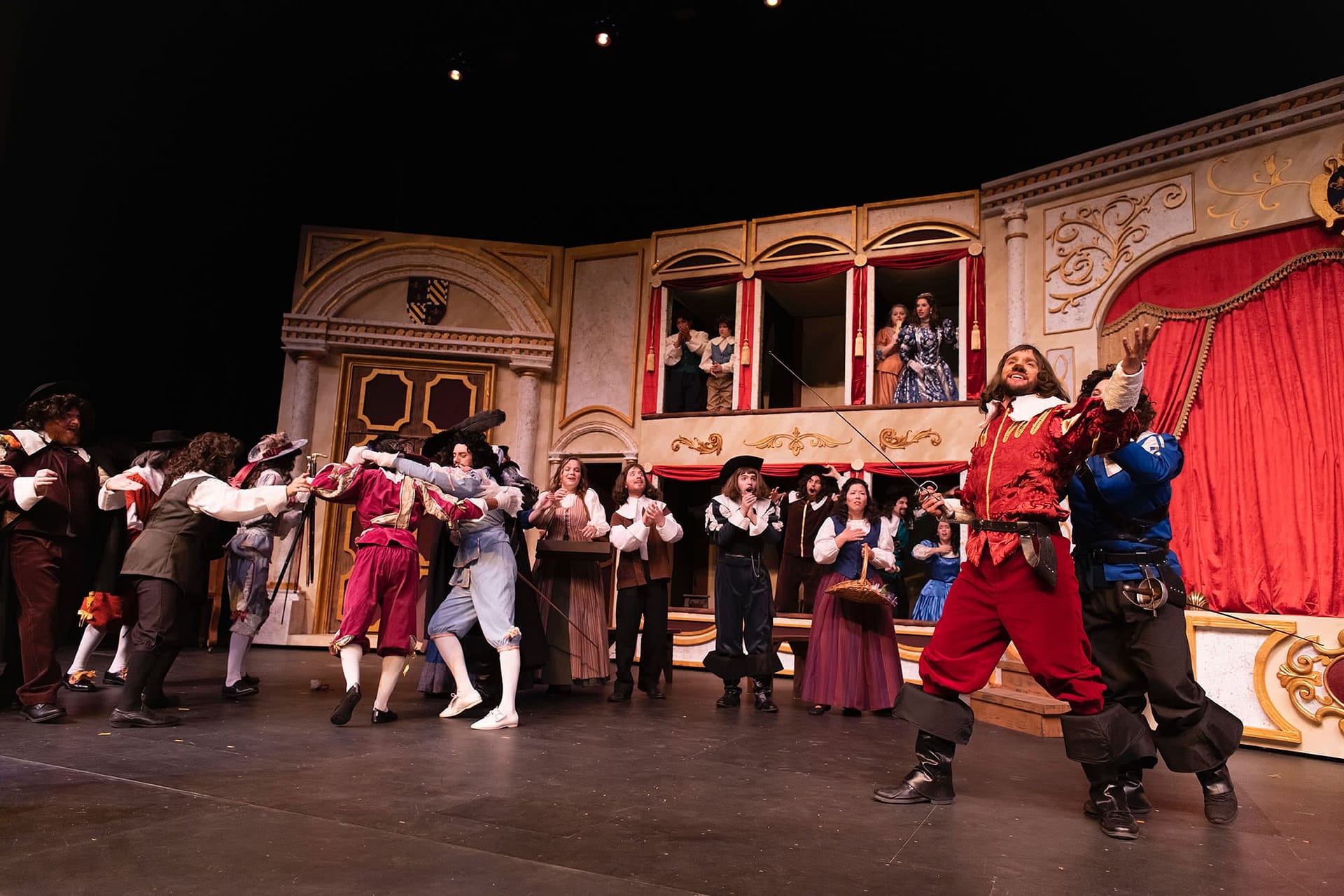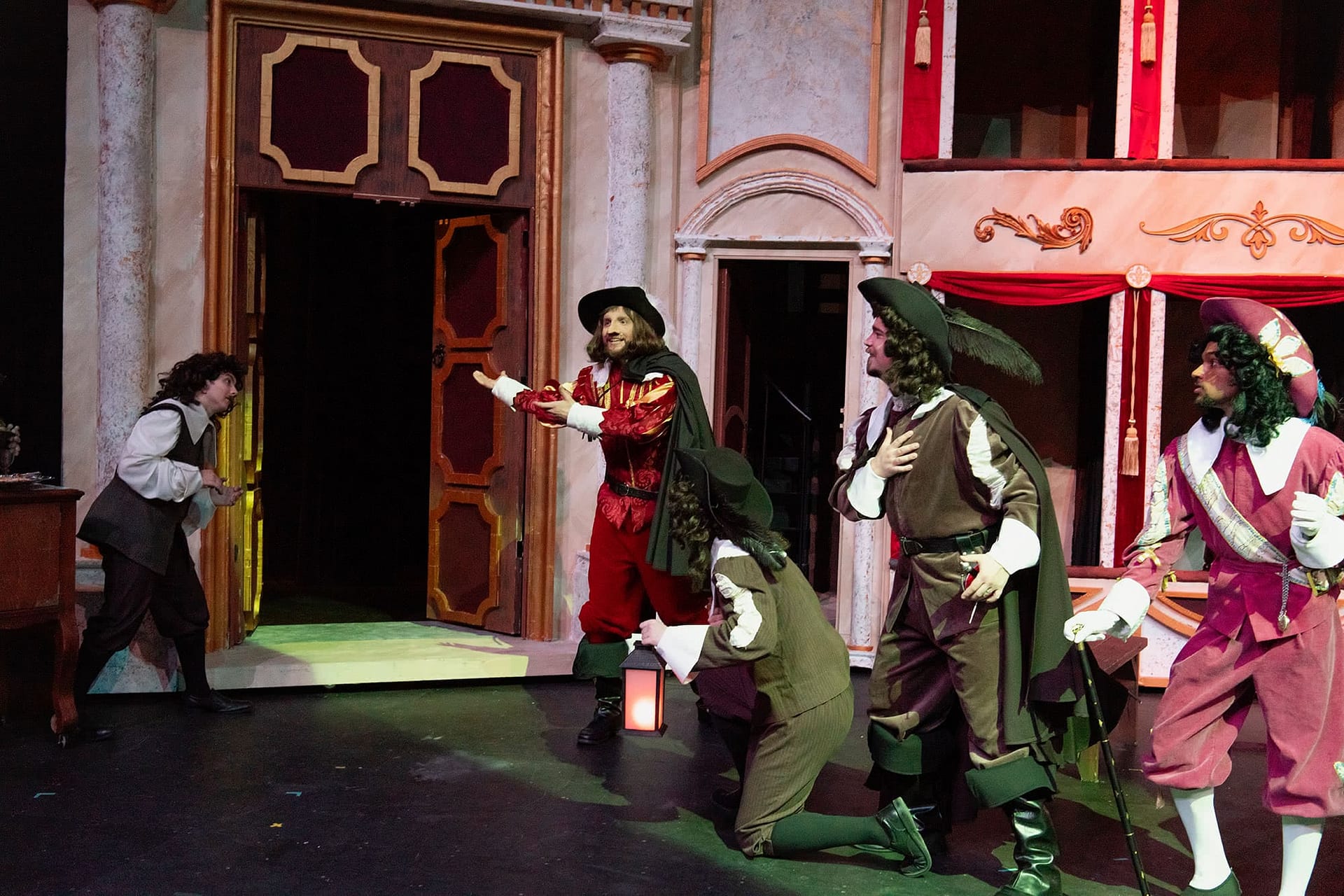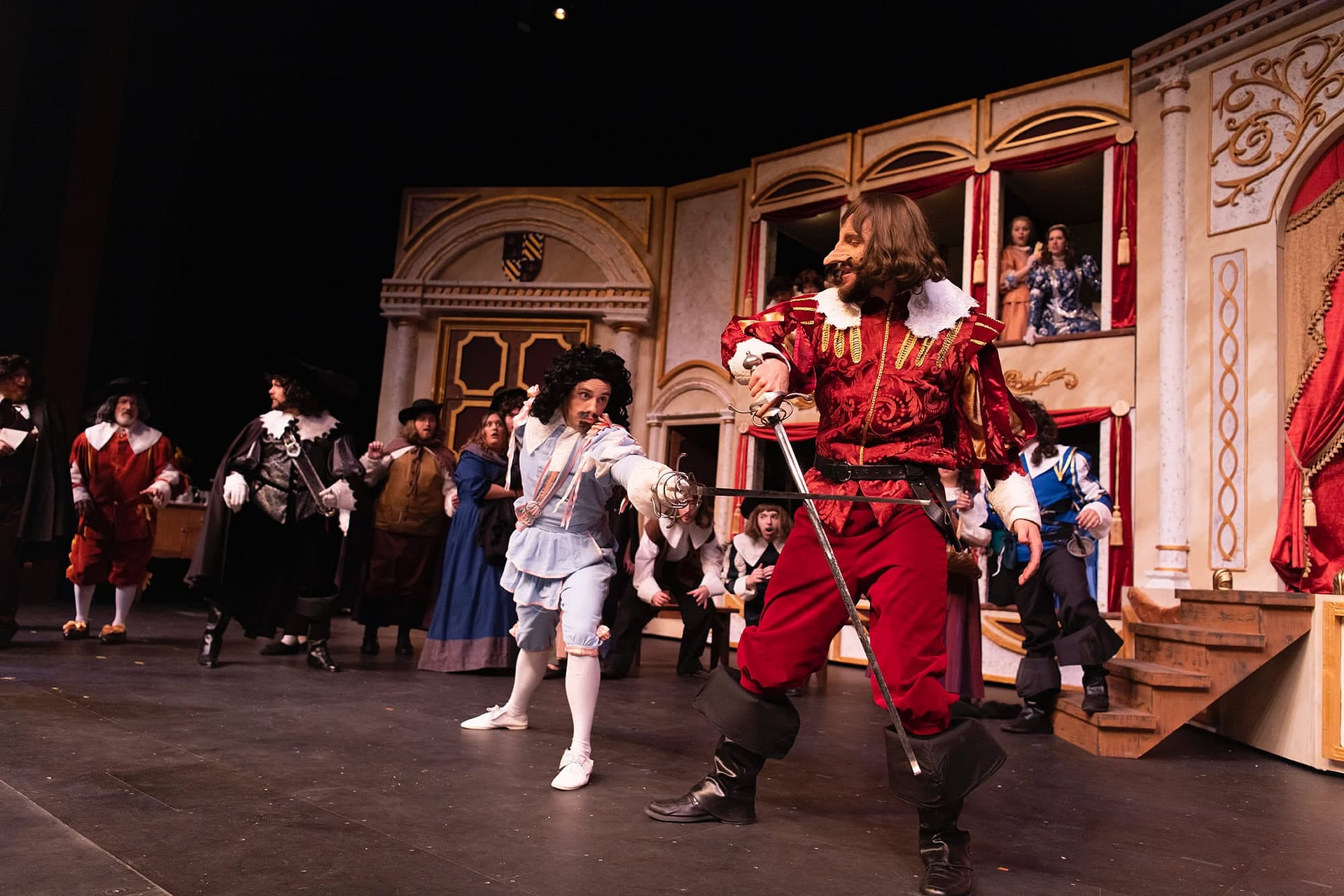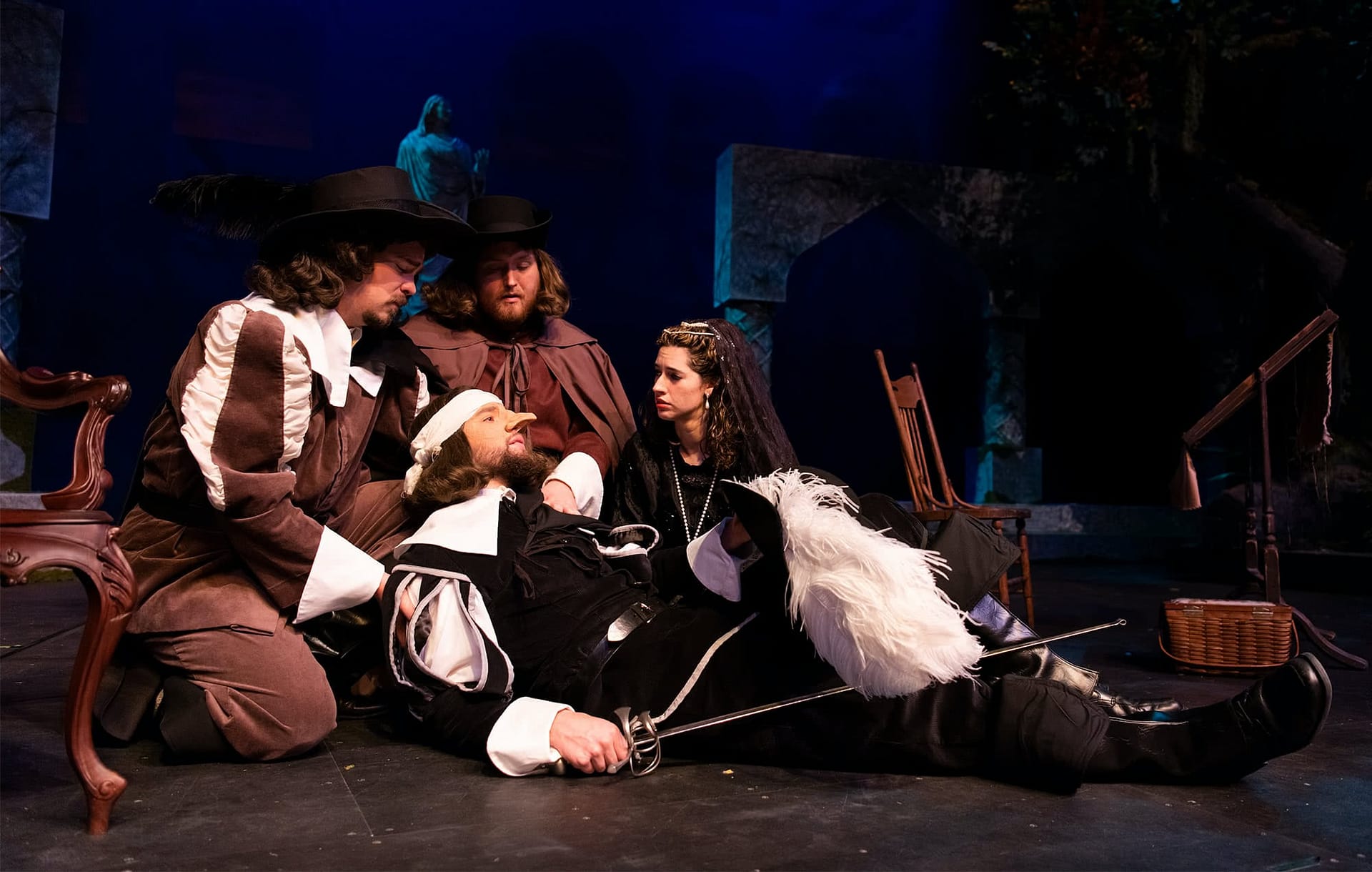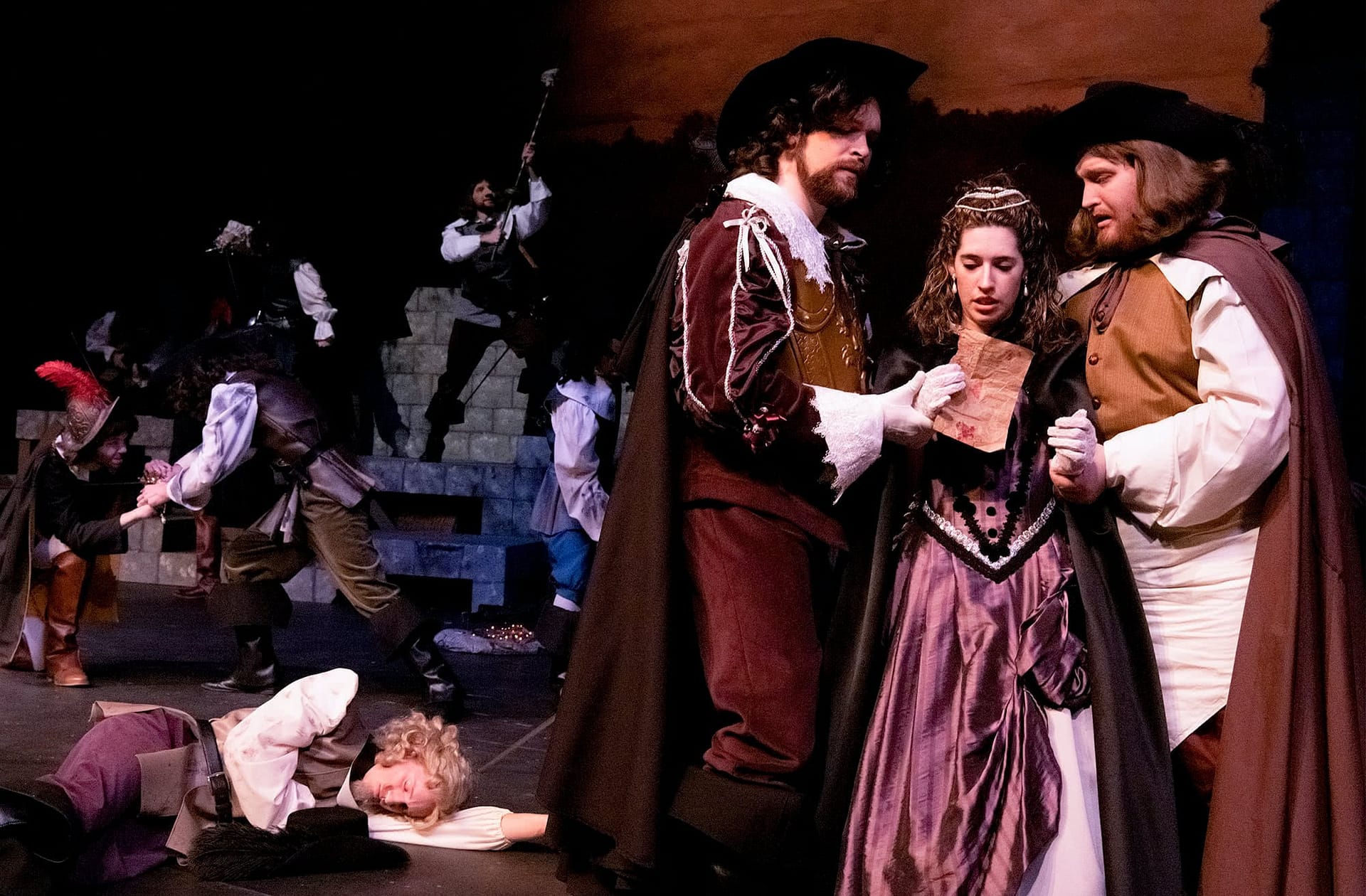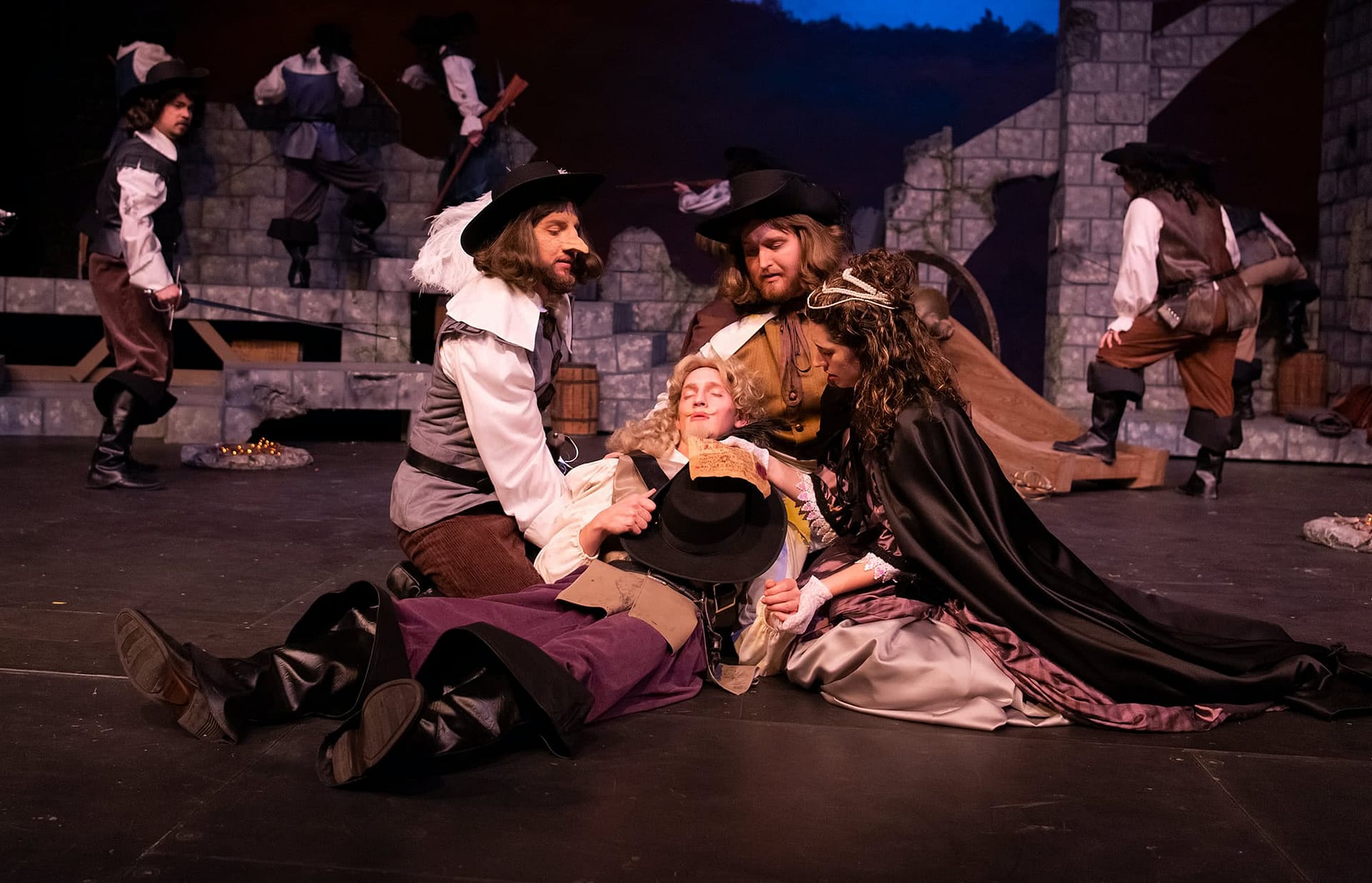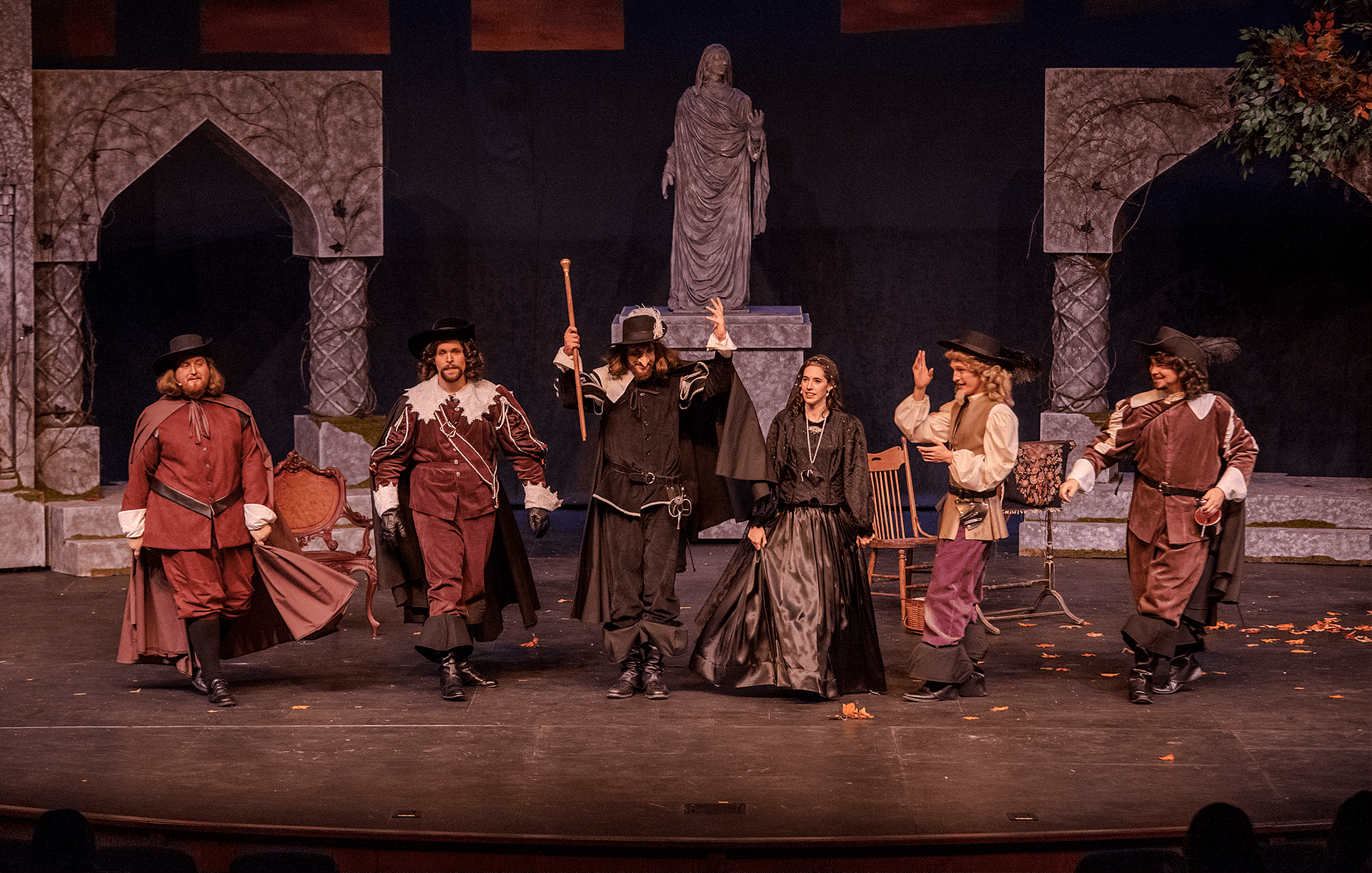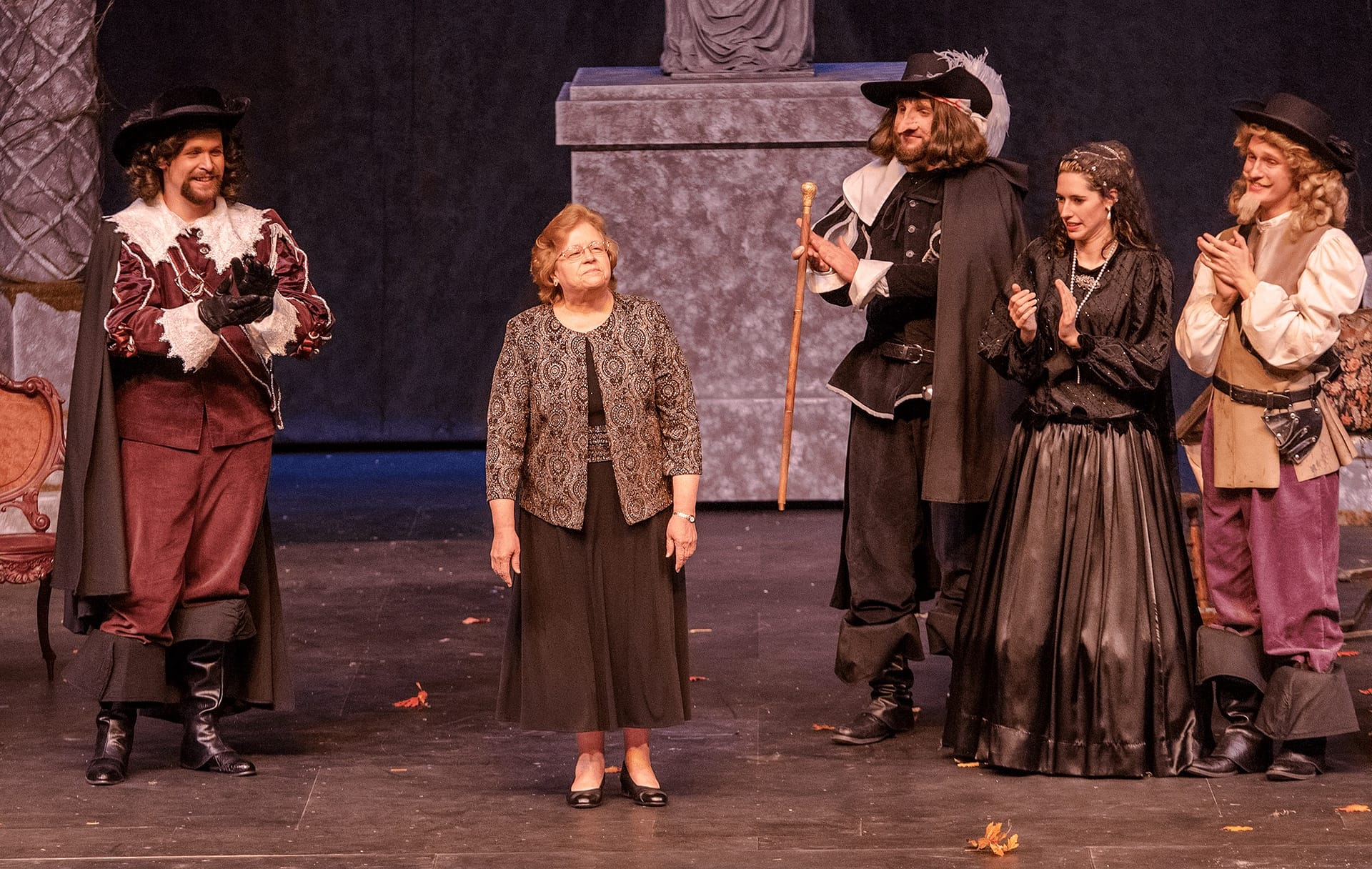“I wish I had your wit,” cried the handsome Christian to the long-nosed Cyrano. “You know Roxane—how sensitive—one rough word, and the sweet illusion—gone!”
“Borrow it, then!” replied Cyrano. “Your beautiful young manhood—lend me that, and we two make one hero of romance!”
In PCC’s Fine Arts Series production of Cyerano de Bergerac, a classic tale of true love and self-sacrifice, Cyrano set aside his heart’s desire for Roxane to help his new fellow cadet, Christian de Neuvillette, win her affection. By lending Christian his own poetic words and charm, Cyrano was willing to let Christian claim them even if it meant Roxane would never know how Cyrano truly felt.

For inspiration, the cast chose the verse, “Greater love hath no man than this, that a man lay down his life for his friends” (John 15:13). Mr. Jacob Van Hall, a performing arts faculty member playing Cyrano, said, “Cyrano’s story embodies this verse’s message through the selflessness shown in Cyrano’s love for Roxane.”

“Roxane is a young girl captivated by romance and fantasy,” said Katie Haughton (Sr., KY), who played the female lead. She was challenged by the size of the role. “It has stretched me beyond what I could have imagined. I think the extra time with Roxane gave me more time to know her—which is a never-ending process.”
Van Hall described Cyrano as “each of the three musketeers rolled into one. The best swordsman, wittiest poet, and most dashing gentleman around. He knows how magnificent he is compared to the rest of the world, but he is overtly aware of his hideously large nose, which makes him monstrously ugly.”

From the audience, junior Delaine Combs (FL) shared what she took away from the play: “Our outward appearance is not what truly matters. What truly matters is what’s on the inside—what’s in our hearts, our personality, and our character. Those things will reflect brighter than our outward appearance.”
It took character—and patience—for the cast and crew to perform seven showings when the typical Fine Arts run comprises three performances. The original opening had been planned for May, but COVID-19 delayed that timeline by seven months. Performing arts faculty member Josh Hutt, who played De Guiche, shared how postponing the production affected preparation. “The hardest part was starting over again. When you rehearse, it’s all about progress. When all of that stops in March and doesn’t start again till September, it can be challenging to begin again,” he said.
“Completing the set in seven months, Cyrano de Bergerac was definitely the largest set we have ever built—normally it takes 3–4 months,” said Mr. Ben Davis, manager of the Scene Shop. He and his team built a tree that Cyrano climbed in the play. “I think it ended up different from our original thought, but we couldn’t be happier with the result. We walked the auditorium looking at it and were surprised that every angle had a unique view of the tree. It’s almost as if it was alive,” he said. “There are a lot of small things that we do that aren’t visible to the audience, but it helps the actors immerse themselves in this world. It’s the small things at the end that really bring a set to life.”

“Postponing the production to November gave me more time to memorize my lines,” said Dwight Bayer (Jr., IL), who played Christian. “It also allowed me to spend more time with my castmates, making my experience more enjoyable. Our director Dr. Monk has done a fabulous job with keeping the cast safe and healthy during rehearsals.”

Since assistant-directing Cyrano de Bergerac in grad school, Dr. Charlene Monk has been connected to the play—one of her favorites—for 40 years. Since 1990, this was the fourth PCC production of Cyrano for the student body. “It has been absolutely delightful, but never have we had a cast work on a production for eleven months and during a pandemic,” she said. “As with any production, it is one thing to read a play on paper, but it is another to watch it come to life. This 2020 Fine Arts production provided that wonderful reconnect to something ‘normal’ in a year of the abnormal.”
“There are many themes throughout the play,” Dr. Monk continued, “but the one we have focused on is the self-sacrifice Cyrano makes honoring the love of Roxane and Christian rather than telling her that it was his own love expressed in Christian’s letters. I hope the audience understands that genuine love goes beyond outward appearances but rather goes much deeper—to the heart.”

